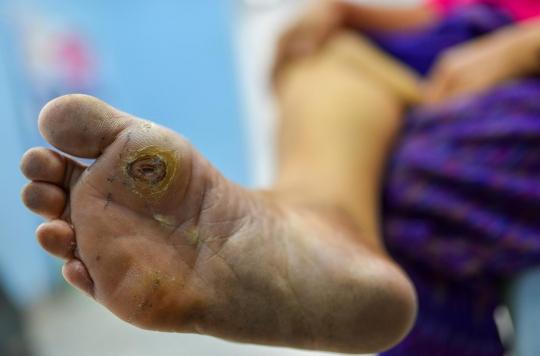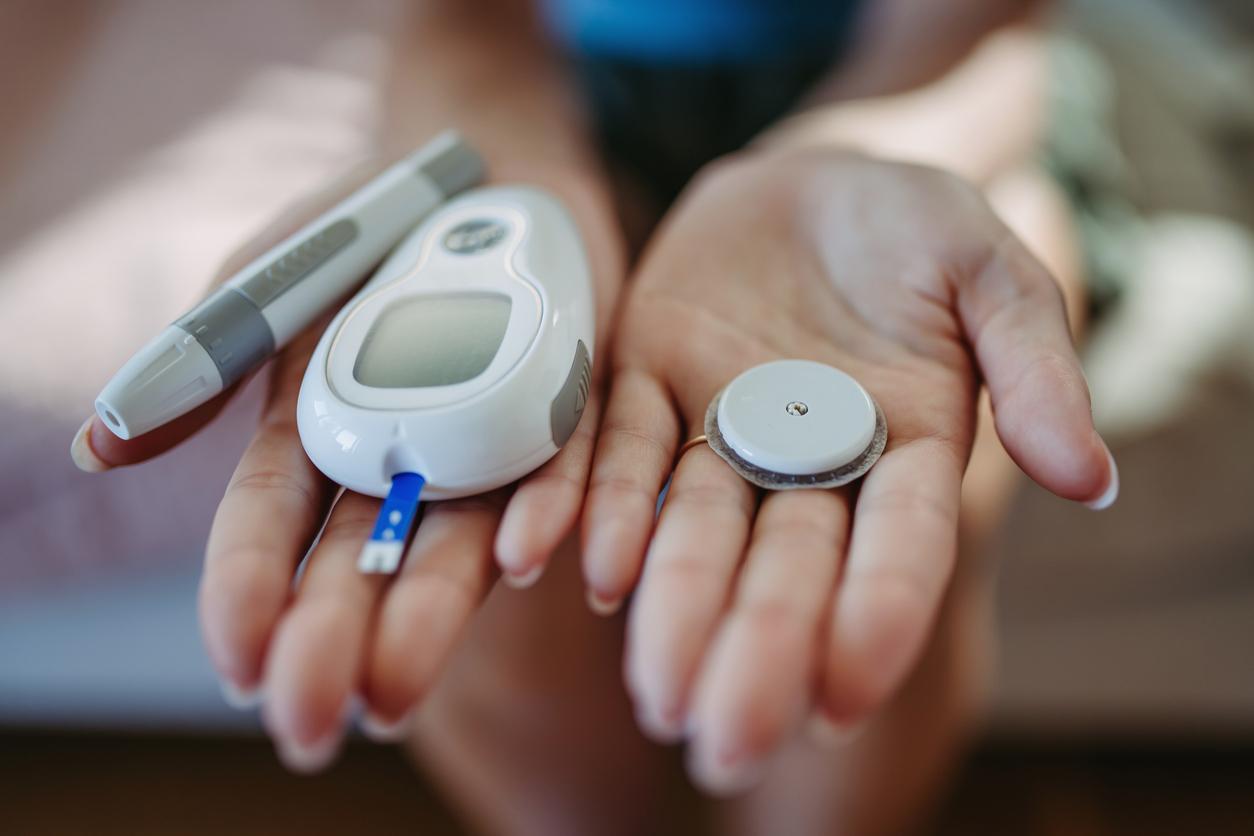In Grenoble, researchers have created a smart patch allowing doctors to remotely monitor the progress of wound healing in diabetic patients suffering from foot problems. Ultimately, this tool could prevent many amputations.

In France, 5.1 million people suffer from diabetes. Among the complications related to the disease, peripheral neuropathy. The latter is defined by a loss of sensitivity of the feet due to damage to the nerves, a reduction in the natural hydration of the foot, which leads to dryness, cracks and calluses, and bone deformities. Diabetics therefore tend to present wounds tending towards chronic inflammation preventing healing.
Each year, 120,000 diabetic patients are admitted to the emergency room for foot ulcers and 10,000 are amputees. To deal with this follow-up problem in wound care, a start-up called Grapheal, hosted by the CNRS in Grenoble, announced at the end of October that it had created a smart patch capable of monitoring wound healing and informing remotely the doctors of his condition.
In detail, this patch is made of graphene, a biostimulant material (cells regenerate faster on contact) capable of accurately detecting a biological phenomenon. The start-up has also integrated a silicon chip into this smart dressing in order to remotely inform the healthcare team of the state of the wound without having to remove the patch.
“Material of 21and century”
Thus, thanks to this “material of the 21and century” and telemedicine, the tool has two powers, boasts Grapheal in a press release. “One therapeutic, the other a follow-up interface for the various health professionals (diabetologist, nurse, doctor) who can intervene.”
After eight conclusive clinical trials, the start-up is now launching a fundraiser to set up trials on patients. “While the expected applications of graphene are numerous, this is the first time that this nanomaterial has found an application in health leading to a commercial product”, she says with satisfaction.
In addition to foot complications, untreated diabetes can lead to blindness, stroke, kidney failure or erection problems. This disease affects 400 million people worldwide and one in two people do not know they have it. In order to make the general public and health professionals aware of this public health issue, World Diabetes Day takes place every year on November 14. To find out where the events closest to you are taking place this year, Click here.

.

















